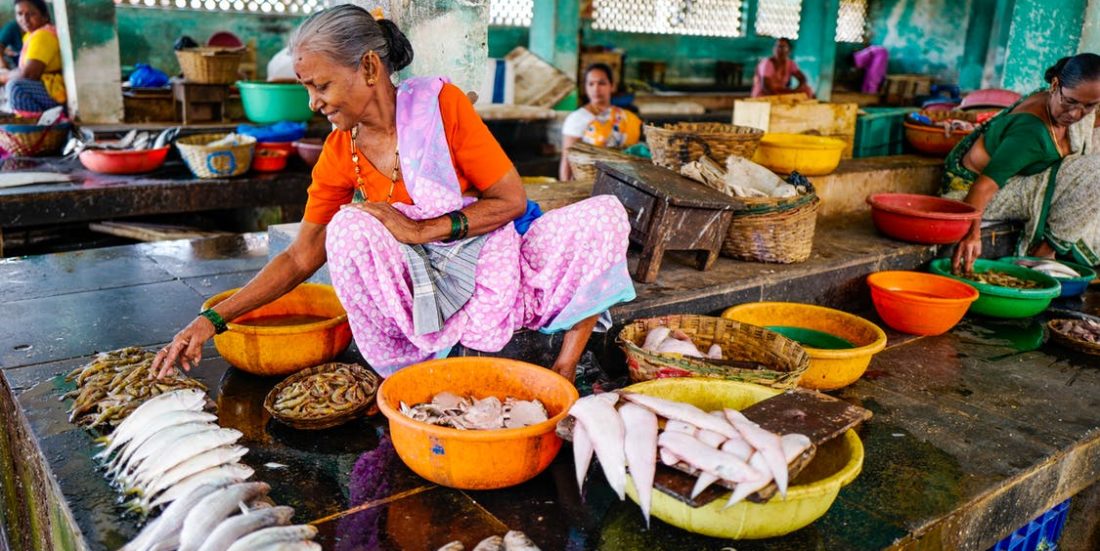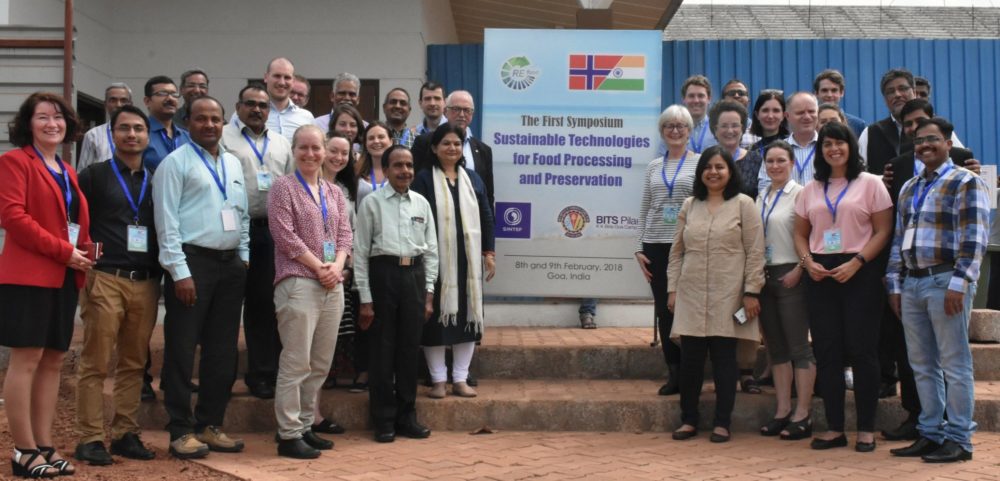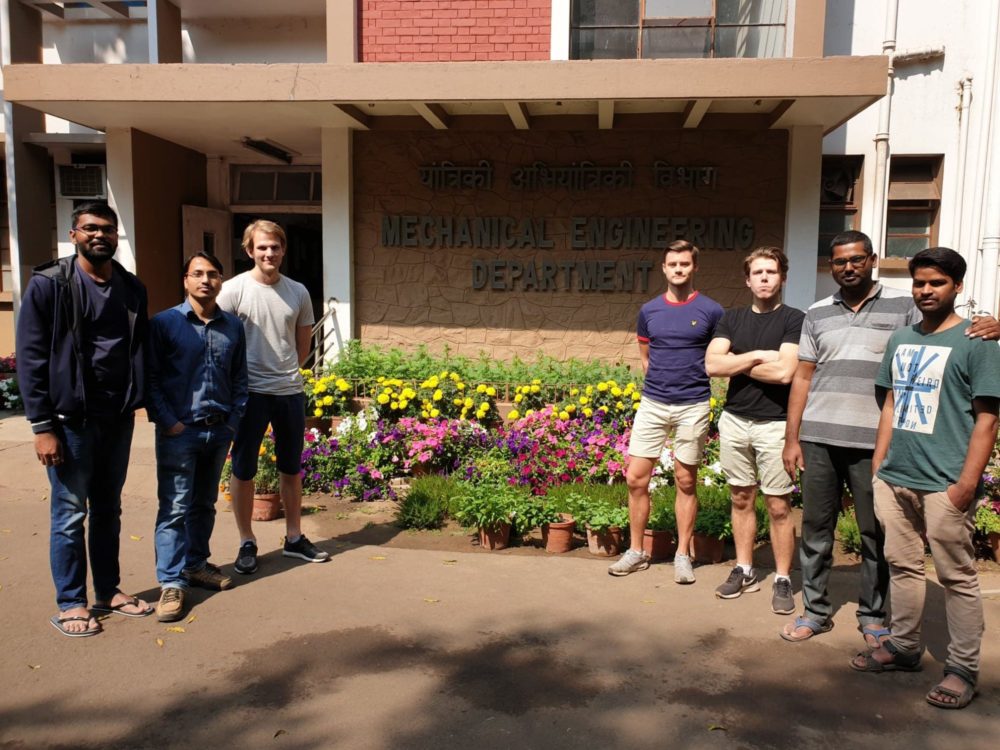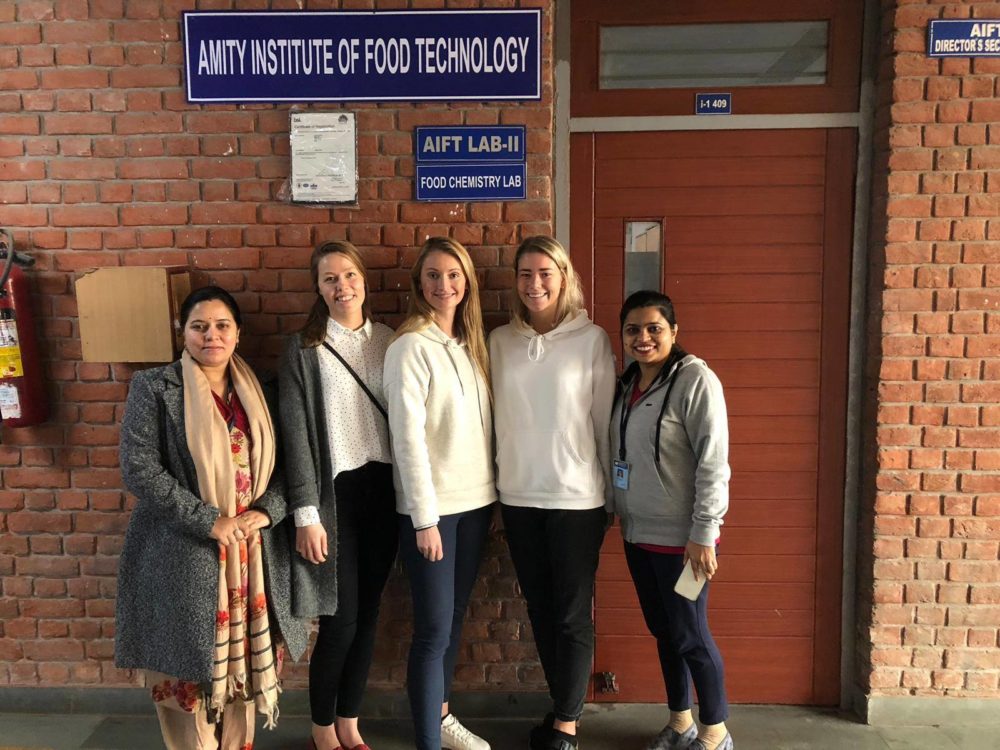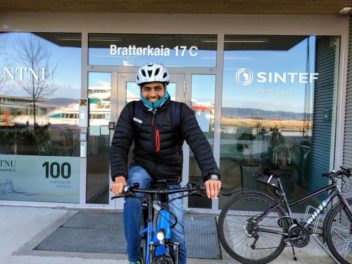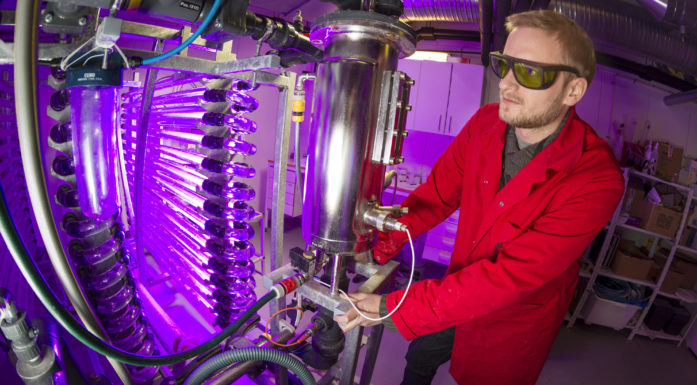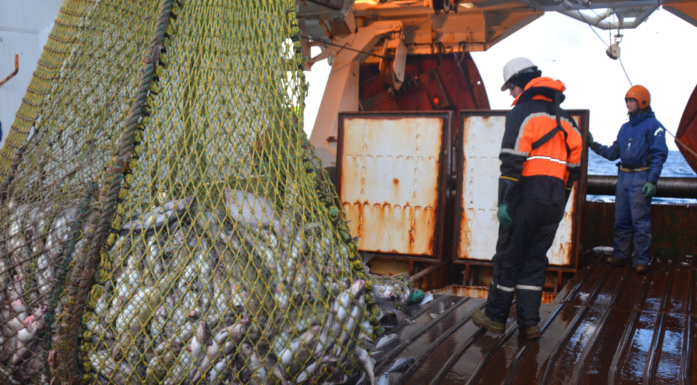This is how Norwegian researchers are reducing food loss – in India
India is one of the largest food producers in the world. The food industry has huge growth, increasing its contribution to world food trade every year. The paradox is that millions go hungry while tonnes of food is lost every year, writes researcher Maitri Thakur in this blog.
In India, the food sector is emerging as a high-growth and high-profit sector due to its immense potential for value addition, particularly within the food processing industry.
The paradox is that millions go hungry while tonnes of food is lost every year. According to the World Economic Forum, India needs 225-230 million tonnes of food per year to feed its population while the farm output in 2015-2016 hit more than 270 million tonnes. So, food production is clearly not the problem, but India needs to focus on reducing the losses during production, processing, and distribution.
SINTEF Ocean has had a focus on India as an international strategic partner in the area of Bioeconomy since 2014 and has been able to establish a partnership with top institutions in this area. The Re-FOOD and ReValue projects have further strengthened this partnership to focus on the challenges to global Bioeconomy.
Reduction of losses and valorisation of rest raw material in the fish value chains is a global societal challenge and at the same time a great competitiveness opportunity. The impact of the Surimi industry on global food waste production is due to its low processing efficiency that generates huge amount of rest raw material (RRM) and wash water. The RRM when not utilized for other value-added products directly turn into losses.
Researchers from both countries are closely working with the industry to develop solutions for improved cold chain management, reducing waste generated by processing, conversion of rest raw material and wash water into high value-added ingredients for food and feed, and finally developing a business strategy for commercial exploitation of the project outcomes in India and Europe.
Annual meetings
Both the RE-food and ReValue projects include annual symposiums and workshops. These annual meetings are organized to disseminate the research, innovation and education results achieved by the projects, as well as to serve as an opportunity to create new contacts to strengthen the cooperation for bio-economy.
Researchers have learned that the topics they want to work with, and the research being conducted is similar, even if coming from two very different countries in different parts of the world. Many different ideas have been discussed for better utilisation of RRM, increasing energy efficiency of refrigeration systems, improving logistics to maintain the quality of the products in the entire cold chain, and reducing climate harmful refrigerants.
First symposium took place at BITS Goa campus and the second one in Mumbai. The third and final symposium is being planned in Kolkata in collaboration with IIT Kharagpur and Amity University in December 2019.
Research Exchange
Researcher and student exchange are at the core of the projects with India and several researchers and students have been actively participating in these bi-lateral exchanges learning from one another and broadening their horizons while developing a worldwide view of the Bioeconomy challenges.
Six students from NTNU have been on exchange to India this year. Three were at the Mechanical Engineering Department at IIT Kharagpur working within the area of refrigeration️ and three were at CSIR-CFTRI Mysore working with utilization of fish rest raw materials. Maintaining a cold chain for food value chains is a major challenge in India due to lack of proper infrastructure and technologies.
Students at IIT Kharagpur are working on smaller refrigeration system concepts and looking into the use of these for food loss reduction by smaller farmers or processors. While reduction of losses is an important topic, utilization of the rest raw materials that cannot be avoided needs special attention and the students at CFTRI are doing exactly that.
“A very valuable experience”
Students agree that their stay in India has been a very valuable experience and would recommend others to use similar opportunities:
“This stay has given me more insight into India and the Indian society than I would ever have gotten from just reading articles and papers. A local shop owner told us that he had very recently bought a fridge after a long time of hesitation. His view had been that refrigerating food made the quality much worse, and in general that it could be dangerous to your health. It was only after reassurance from his doctor that he made the decision to actually buy one.”
This is just one out of the many situations where we met unexpected challenges and different ways of thinking in India. I would even say that I have started to see some method and reason behind what I would previously have called chaos. After all, we are all the same people, just in different places with different backgrounds and opportunities” says Benjamin.
According to Tom Andre: “Comparing India to Norway is difficult, as they are two very different countries. One of India’s major issues is the large population. Being a developing country, a lot of people are uneducated and unaware of what’s best for themselves and the world around them. On the other hand, the entire country of Norway is about the size of Kolkata, and consequently, we don’t face the same problems. Another difference is the infrastructure and living standards, however, once you get used to it, you realise that life here is interesting and quite nice. In addition, we Norwegians really love sunshine and warm weather, so I would definitively recommend visiting India”.
“The limited opportunities for the people living here has surprised me. There are many people not able to put their talents to use with the opportunities they have. We have experiences issues with reliable internet, electricity, and of course the heat. It is quite an experience to feel like you are going into a sauna every time you leave an air-conditioned room” added Erling.
Students from IIT Kharagpur are now back to Trondheim. On their last day, the fellow students in India bought them some farewell gifts. ( The blog continues under the pictures.)
NTNU students at IIT Kharagpur on their last day.
Sandeep Singh, a PhD student from IIT Kharagpur spent 3 months in Norway working at SINTEF Ocean. He developed a decision support system for improved logistics planning for in the whitefish industry in Norway. His work was presented at the WEFTA conferences in 2018 and another presentation is planned at the EUROMA conference in June 2019.
Apart from the work, he was very happy to try skiing, visiting mountains, testing electrical bicycle, learning about Norwegian life, and he was determined to return to Trondheim whenever an opportunity will come.
Industry visits
Industry visits are arranged as a part of the RE-food and ReValue projects. During the annual symposium in India, 40 participants visited the Kaiko Surimi plant in Mumbai. The visit included a tour of the facilities and gave the researchers and industry partners a very interesting view into the Indian Surimi industry.
Cultural diversity
Working styles and attitudes at times can be very different, reflecting cultural values and compounding differences. Technological advances as well as work environments that might be taken for granted in Norway can be an exception in India. For instance, lack of adequate laboratory safety routines in India was a challenge that the exchange students dealt with during their initial days and work came to a halt for a while as the conditions were fixed.
All in all, cultural diversity represented in both the projects has left participants with a broader understanding of the challenges the world is facing in the field of Bioeconomy, but also with the understanding that we work towards a common goal and that there are good solutions available.
According to the Department of Industrial Policies and Promotion, the food processing sector in India has received around US$ 7.54 billion worth of Foreign Direct Investment from 2000 to 2017. The Confederation of Indian Industry estimates that the food processing sector has the potential to attract as much as US$ 33 billion of investment over the next 10 years and also generate employment of nine million person-days. Prospects for further collaboration with India are huge given that the right collaborative opportunities can be identified.
Contacts:
Maitri Thakur
Senior Research Scientist
SINTEF Ocean
Maitri.Thakur@sintef.no
Kristina N. Widell
Senior Research Scientist
SINTEF Ocean
Kristina.Widell@sintef.no
